




Starting from the central area of Yaozhou District, Tongchuan City, Shaanxi Province, travel a short distance up winding mountain roads, and after about 60 li of twisting and turning through the layered mountains, you will reach the valleys where Liulin Primary School in Miaowan Town, with its unassuming entrance sign, quietly stands.
It is the end of the school day, and most children walk out of the school gate in groups of three or five, while the rest head to the cafeteria for a meal before returning to the dormitory behind the teaching building. Among them, some live in Wulian Village, nearly nine kilometers away from the school, and the journey home requires crossing mountains, making it inconvenient for their parents to pick them up.
By six o'clock, the bustling campus gradually returns to calm. For Li Lei, a fifth-grade homeroom teacher, this time usually marks the beginning of her “overtime work.”
From Monday to Friday, she teaches two or three classes a day for two grades, covering Chinese and English, and oversees various matters such as class hygiene and discipline. After school, she begins grading students' assignments, including dictations and essays, which takes at least another two class periods. It is not until eight or nine in the evening that her busy day, which starts shortly after seven in the morning, finally settles down.
This is her fifth year working at Liulin Primary School. Occasionally, she notices the developments in technology, such as artificial intelligence, and imagines how wonderful it would be if they could help her “be in multiple places at once.” This way, she could do more for the children in her class, helping them to better leave the mountains and go further.
This is a common hope among the many teachers in village schools.
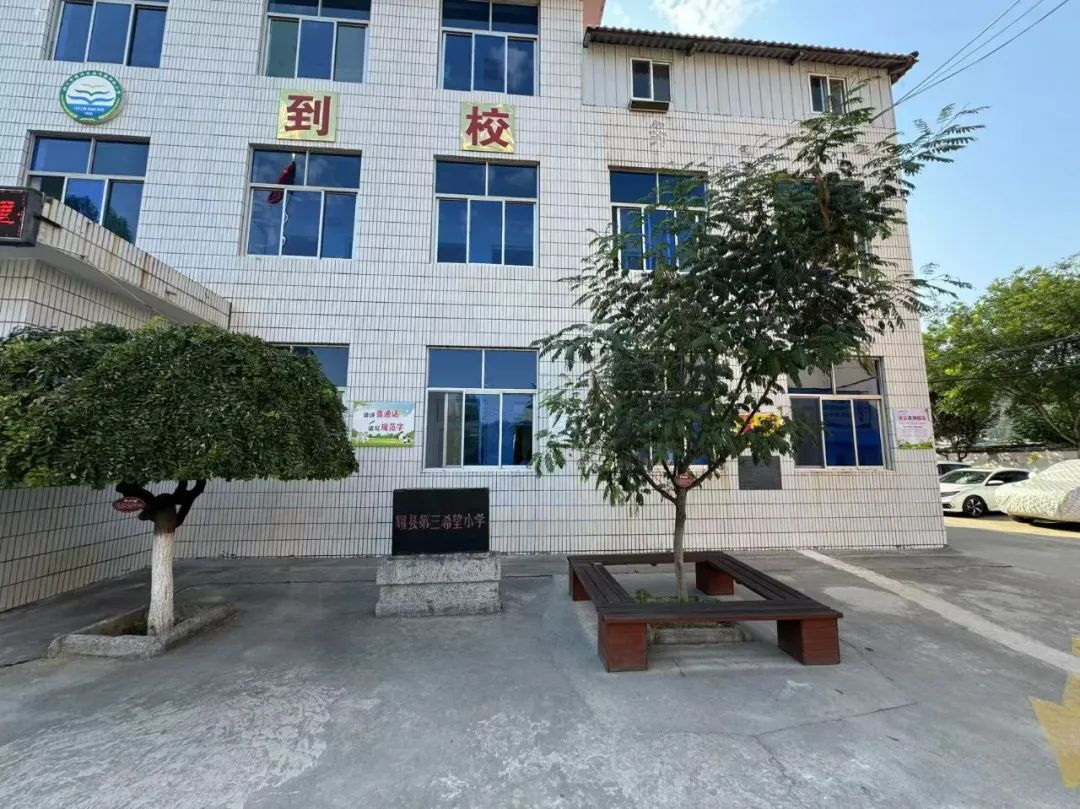
Liulin Primary School, originally known as “Third Hope Primary School of Yaoxian”
Over the years, Liulin Primary School has undergone many changes. Last year, with donations from kind-hearted individuals, Liulin Primary School bid farewell to its aged, uneven, and cracked concrete playground. They welcomed a brand-new playground consisting of a new track, a standard basketball court, and a five-a-side football field.
“This is my favorite place in the school,” an excited fourth-grade student said, pointing to the lawn in the playground. “Whenever we have time, some classmates and I come here to play soccer.”
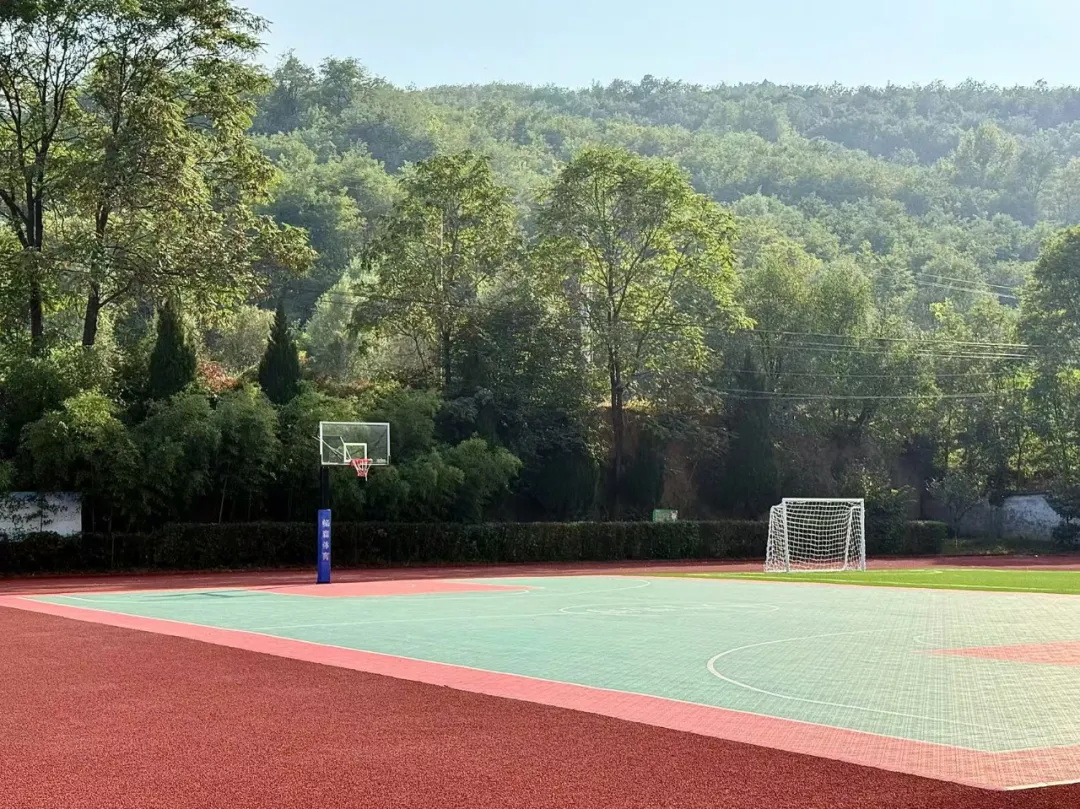
The new playground at Liulin Primary School, surrounded by mountains
Beyond the activity space, the daily lives of the students have significantly improved through the Nutrition Improvement Plan, with lunches consisting of two meat dishes, two vegetable dishes, a soup, and a main course, making meals even more abundant than what they might have at home.
Back in the classroom, just like schools in cities, multimedia teaching equipment and electronic whiteboards have become daily teaching aids for Li Lei and her colleagues, enabling them to provide students with more direct and intuitive learning experiences. For example, compared to feeling the beauty of mountains and rivers abstractly through textbook images and teacher recitations in the past, students now can directly see the majesty of mountains and the flow of water through carefully selected short videos or animations by the teachers.
“With these devices, we teachers can prepare more supplementary materials during lesson planning, and during class, we can further stimulate the children's interest in learning, deepen their understanding, and broaden their horizons,” Li Lei said, experiencing firsthand the improvements in educational environment brought by the enhancement of the school’s facilities over the past few years.
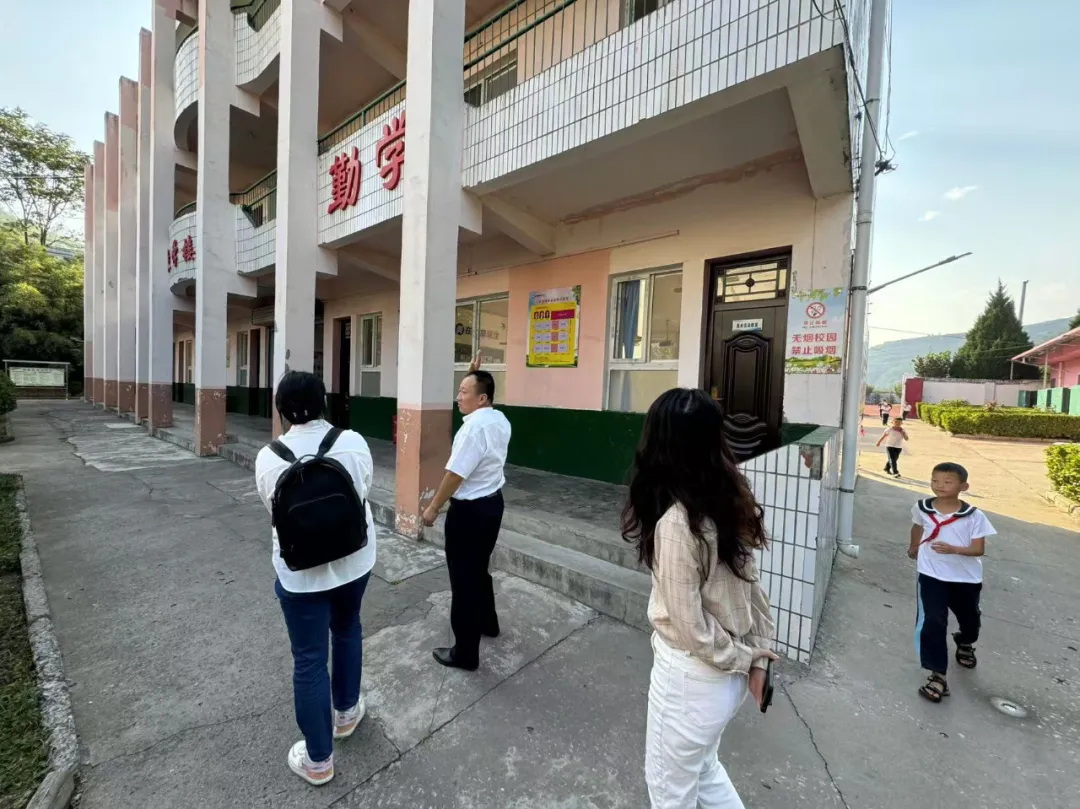
Liulin Primary School’s teaching building
However, she and her colleagues know that compared to urban schools, the educational resources in mountain schools are still relatively inadequate.
One of the most direct manifestations of this gap is in the teachers’ workload.
Even though Liulin Primary School does not have many students—only just over 100 in total, with only one class per grade from first through sixth grades—Li Lei's fifth grade, being the largest, has only 26 students, while the smallest class has only 12, far fewer than the over 50 students per class common in urban schools. However, the teachers’ workload has not lightened accordingly.
Including the principal and administrative staff, Liulin Primary School has a total of 17 teaching and non-teaching staff. It is common for teachers to teach two or three subjects. Each teacher handles around fourteen to fifteen classes a week, which averages to nearly 200 minutes per day, not including after-school services. After school, teachers must accompany the students during self-study sessions. Even the principal teaches science to the fifth and sixth grades. Adding in the time for lesson planning and correcting assignments, teachers spend nearly four additional class periods a day, almost another three hours.
As the grade level increases and course difficulties rise, the challenges faced by teachers also grow.
Take Chinese for the fifth grade, which Li Lei teaches, for example. Grading students' compositions word by word and sentence by sentence is more complicated than for lower grades, requiring more words, more thoughtful ideas, and more precise and vivid use of language. In addition to this, Li Lei must also provide individual tutoring for students with unique personal issues.
Guo Wei, the fifth-grade math teacher, found that some students with unstable foundations began to fall behind this semester. “In class, they understand the formulas when explained, but if they don’t practice on their own, they quickly forget,” Guo Wei lamented.
Besides the teaching responsibilities, Liulin Primary School teachers also have to take on some logistical duties, such as replacing light bulbs in the hallways and patrolling the student dormitories.
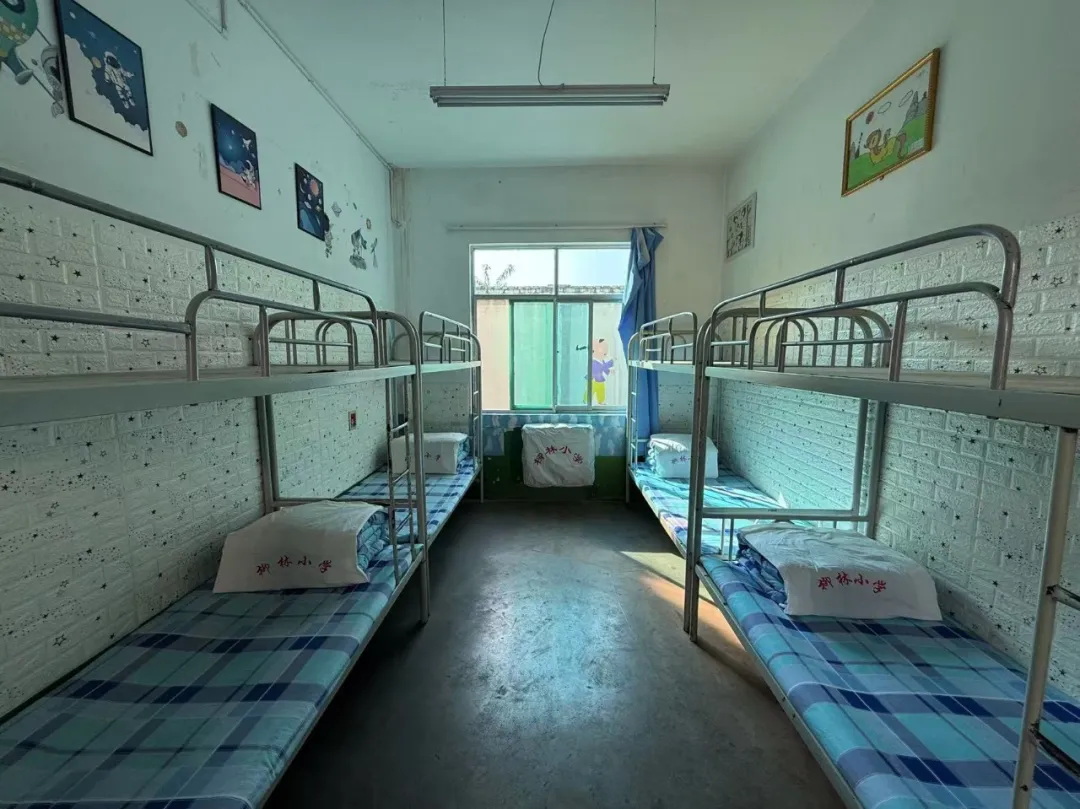
Clean and tidy dormitories at Liulin Primary School, maintained by teachers and students
With all these responsibilities adding up, there is never enough time, a daily reality for almost all teachers at Liulin Primary School.
To save more time and energy for the children in their classes, Li Lei and several colleagues often stay at the school on weekday nights. This means they can only spend weekends with their own children.
But for teachers in mountain schools, the bigger challenge brought by insufficient educational resources is the pressure.
The pressure comes from the lack of resources at home to support the children, placing the weight of their education almost entirely on the teachers, encompassing not just academics but also their daily lives and habits.
“In our village school, some children are left-behind children, possibly growing up with their grandparents, while others come from single-parent families. Even if both parents are present, they might completely neglect their child's studies either due to a lack of time or ability. Over 90% of parents cannot adequately support their children’s education,” Li Lei said with empathy.
The absence of parents in their growth, lack of knowledge, or inadequate conditions, indeed limits the children's learning and lives to an extent.
For example, when encountering problems at home, many children can only use their parents' phones to search on Baidu. “But Baidu won't teach you how to solve the problems; seeing the answers doesn’t help,” one student at Liulin Primary School frets. Other difficulties include checking pronunciation and spelling of English words since parents are often unable to help.
Another student mentioned her yearning to join extracurricular classes, such as dance, painting, or hosting, and also wished to read more extracurricular books, as her home copy of “Journey to the West” had been well-read. However, she understands her family’s financial limitations, so she uses parents’ phone to scroll through content that interests her for relief whenever she can.
More children completely forget schoolwork the moment they get home, immersing themselves in relaxation. The phones in their hands become harder to control, with some children playing games or watching short videos for hours, further scattering their attention.
“Letting them go home is like letting them be free-range,” teachers in mountain schools often ruefully joke. After all, it is impossible to meet all the children's needs and expectations 24 hours a day.
Additionally, Liulin Primary School provides support to some students who require home visits from teachers, such as Fang Xin (a pseudonym), a child with congenital intellectual disabilities. Fang Xin lives in a mountaintop home ten kilometers away from Liulin Primary School, along a narrow road where vehicles must carefully maneuver past each other.
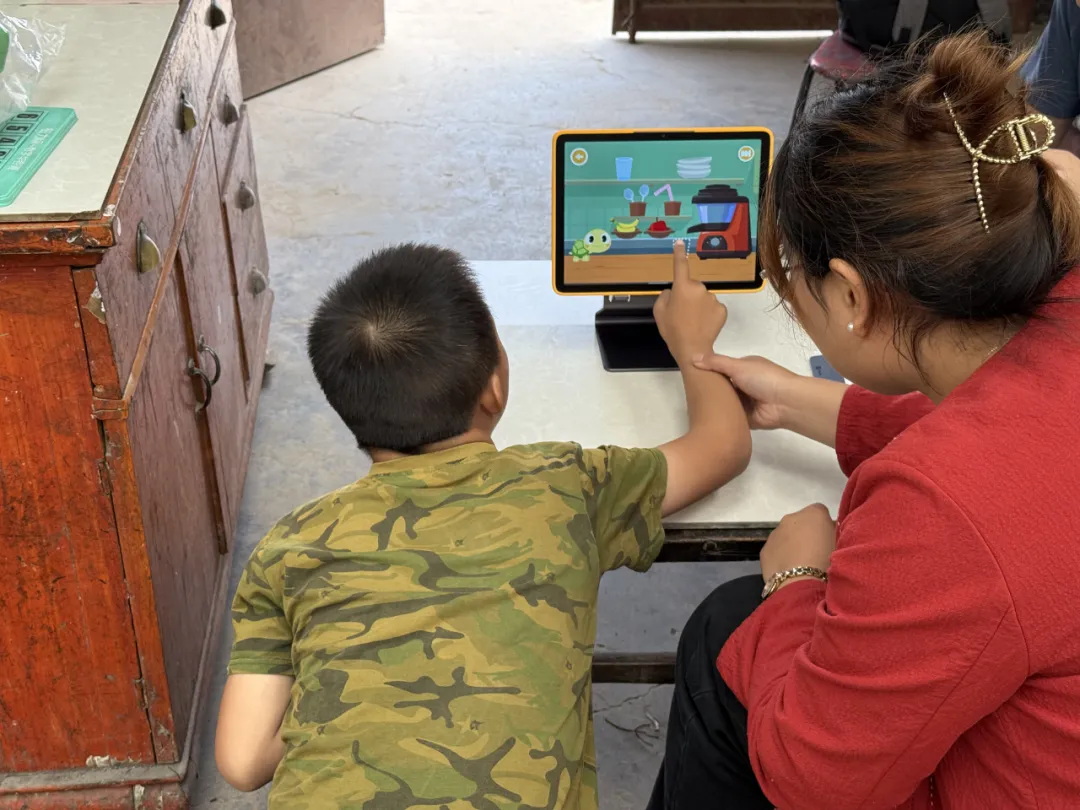
Fang Xin, who is engaged in his studies in the company of his teacher
Fang Xin reached school age but could not attend due to his condition, and his parents, busy earning a living, had no time for his education. Despite having no special education experience, teachers still hoped to start Fang Xin’s education, even if just to help him better grasp life skills.
Since 2018, every two weekends, Liulin Primary School teachers have taken turns visiting Fang Xin's home, gradually teaching him how to communicate, recognize colors, count, perform basic arithmetic, and identify simple Chinese characters over six years.
Despite numerous hardships, these mountain school teachers persist year after year, maintaining a bond with each child, refusing to give up any hope.
“As our children do not have many other talents, they can only rely on themselves. I hope they can use education to get out and see more of the world,” said Li Lei, who returned here five years ago.
For her and many mountain school teachers, this defines the meaning of education—it is the key for children to leave the mountains.
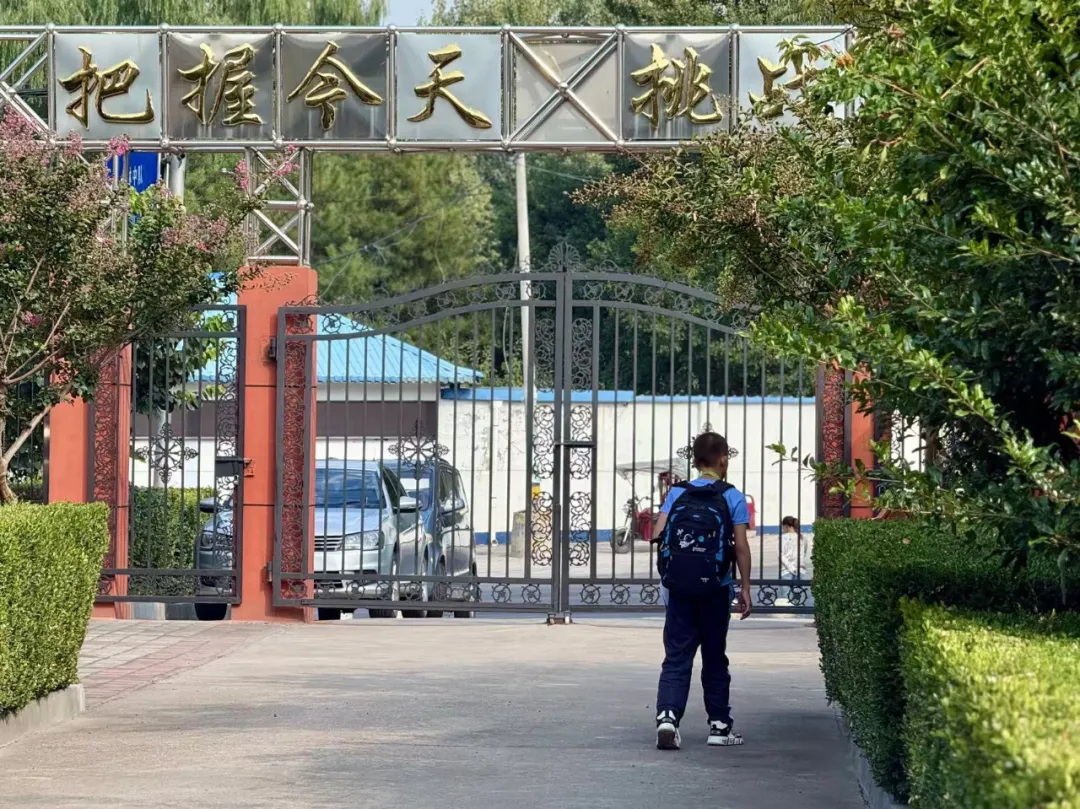
Because of this, seeing the continuous improvement of school facilities and the rapid development of technology, Li Lei often dreams of methods to multiply her efforts.
She imagines ways to help her grade assignments faster and plan lessons more efficiently, allowing her to spend more time expanding her students’ knowledge, perhaps even introducing them to programming lessons popular among city children,or having an alternative “teacher” to supervise students' studies when she is not around.
Recently, upon hearing about an upcoming donation of AI learning machines from Xueersi to the school, Li Lei was full of anticipation. She had previously heard about these AI learning machines, knowing they contained excellent courses and practice materials for students, although she was curious about the role artificial intelligence could play in education.
On September 23, Xueersi’s public welfare team came to Liulin Primary School to train teachers on how to use the learning machines. Following the trainer's guidance, she placed a student’s essay under the learning machine's “smart eye,” tapped to take a photo, and uploaded it. Soon, the machine identified incorrect characters and sentences, providing comments on the essay, along with suggestions for improvement.
An English teacher next to her tried out the reading-aloud function, selecting a passage from the current semester’s textbook to read to the learning machine. It promptly pointed out and corrected mispronunciations. When she called out “Xiao Si, Xiao Si” and asked it a question, the learning machine quickly understood and responded appropriately.
Soon, the math teacher next to them excitedly noticed how accurately the machine detected an incorrectly aligned decimal in a division problem. Teachers spent some time reviewing the machine’s practice questions for different student levels, nodding in approval.
After the training, Li Lei started thinking about how, aside from grading assignments and better lesson preparation, the learning machine could help students with reviews and clarification. The comprehensive sections can even introduce students to extra-curricular knowledge.
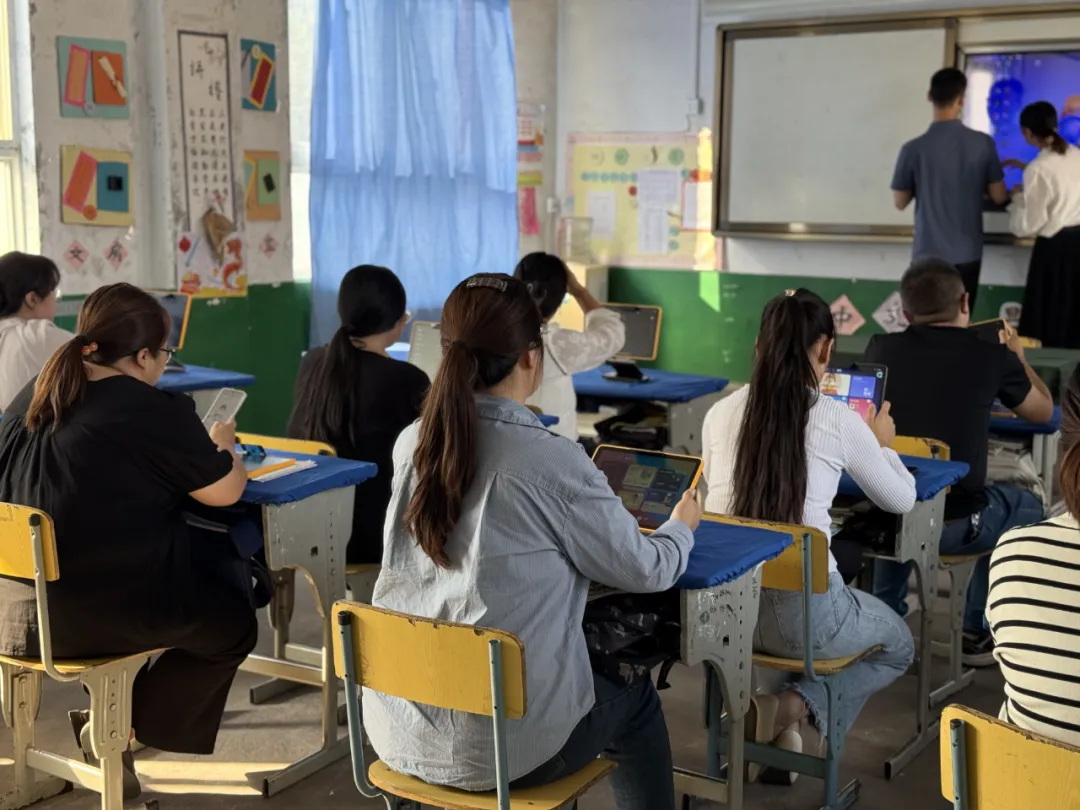
Liulin Primary School teachers being trained by Xueersi’s public welfare team
As of today, teachers at Liulin Primary School have begun using the learning machine in their classes. A few days ago, Guo Wei used it to explain “translation,” a concept involving some abstraction which students had trouble grasping. Utilizing the machine’s animations provided a tangible illustration to help students better understand.
Teachers who visit Fang Xin’s home bring a learning machine along. With the animations and interactive games, Fang Xin becomes more focused. Upon completing each task, he excitedly high-fives the teacher beside him.
Since the “Hand in Hand” 100 School Donation Action by Xueersi officially started in June this year, Xueersi has visited village schools in multiple regions, including Jinyun in Zhejiang, Luding in Sichuan, Bijie in Guizhou, Yushu in Qinghai, and Midu in Yunnan. By leveraging the learning machine, Xueersi has synchronized more village students’ learning resources with those of city students, providing new learning experiences for both students and teachers in village schools.
In schools covered by Xueersi’s visits, the learning machine has already started showing its effectiveness. At the central school in Ganhe Street, Qixingguan District, Bijie City, Guizhou, after over a month of use, students routinely check their English reading progress, seek various solutions to extend thinking outside of their teachers’ methods, and show more imagination in their writing. Teachers can also choose expert lessons to bolster their own skills, finding this more precise and effective than standardized training programs.
For school principal Zhai Gao, the most gratifying impact of the learning machine is the positive change in the children's attitude.
“The learning machine is something we could only dream about,” the students felt it was very distant. Now, having access to this tool for learning boosts their confidence and improves their overall state,” Zhai Gao said.
He sees the seeds of confidence planted in the children's hearts. He knows these seeds will someday sprout and thrive, envisioning a bright future for these children.
Source:China Newsweek
Author: Shi Take